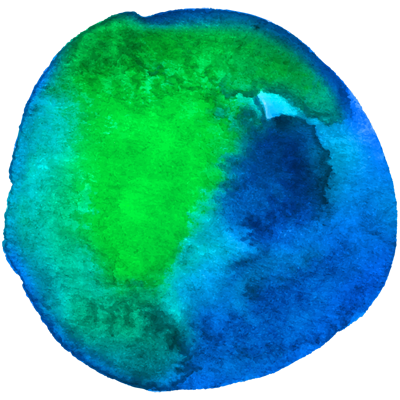Sage (Salvia officinalis)
Phenolic compounds such as rosmarinic acid and flavonoids present in sage leaves have demonstrated acetylcholinesterase inhibitory activity, thereby increasing synaptic acetylcholine levels.
Literature Review
Clinical research shows that specific products that contain common sage polyphenols and Spanish sage terpenoids has been shown to modestly improve working memory and accuracy. The effects were observed either with a single dose or when taken daily for 29 days. A single dose of this product contains common sage leaf extract 400 mg and Spanish sage essential oil 200 mg.[i]
In addition, preliminary clinical research shows that Spanish sage essential oil in doses of 25-50 mcL appeared to enhance some cognitive performance markers in young adults.[ii],[iii],[iv],[v]
Taking 333 mg of common sage extract showed improvements in attention accuracy and some memory measures in healthy older adults, although not all doses were effective and some cognitive functions were not impacted.[vi]
Mechanism of Action
General: The applicable part of sage is the leaf and volatile oil. Sage contains 1-2.8% of volatile oil. The volatile oil contains several pharmacologically active constituents, including camphor, 1,8-cineole, alpha- and beta-pinene, bornyl acetate, geraniol, limonene, camphene, linalool, alpha-terpineol, gamma-terpinene, alpha-humulene, beta-caryophyllene, rosmarinic acid, carvacrol, luteolin, cirsiliol, apigenin glucosides, luteolin glucosides, and is also a rich source of beta-carotene.[vii],[viii],[ix]
Anxiolytic effects: Animal studies have shown that rosmarinic acid in sage may produce anxiety-reducing effects in lower doses.[x]
Neurologic effects: Compounds like cirsiliol have CNS depressant activity.162 Linalool and alpha-terpineol exhibit anticholinesterase activity, which may help improve memory and cognitive performance. The potential for sage to improve memory and cognitive performance has been attributed to its anticholinesterase activity.[xi],[xii],[xiii],[xiv],[xv],[xvi],[xvii],[xviii],[xix]
In vitro studies indicate that rosmarinic acid from sage may protect cells from amyloid-beta peptide-induced neurotoxicity, another possible mechanism for Alzheimer's protection. This suggests that rosmarinic acid from sage can protect pheochromocytoma (PC12) cells from amyloid-beta peptide-induced neurotoxicity.[xx]
References
[i]Wightman EL, Jackson PA, Spittlehouse B, Heffernan T, Guillemet D, Kennedy DO. The acute and chronic cognitive effects of a sage extract: A randomized, placebo controlled study in healthy humans. Nutrients. 2021;13(1):218.
[ii]Tildesley NT, Kennedy DO, Perry EK, et al. Salvia lavandulaefolia (Spanish Sage) enhances memory in healthy young volunteers. Pharmacol Biochem Behav 2003;75:669-74.
[iii]Tildesley, N. T., Kennedy, D. O., Perry, E. K., Ballard, C. G., Wesnes, K. A., and Scholey, A. B. Positive modulation of mood and cognitive performance following administration of acute doses of Salvia lavandulaefolia essential oil to healthy young volunteers. Physiol Behav. 1-17-2005;83(5):699-709.
[iv]Kennedy, D. O., Pace, S., Haskell, C., Okello, E. J., Milne, A., and Scholey, A. B. Effects of cholinesterase inhibiting sage (Salvia officinalis) on mood, anxiety and performance on a psychological stressor battery. Neuropsychopharmacology 2006;31(4):845-852.
[v]Kennedy, D. O., Dodd, F. L., Robertson, B. C., Okello, E. J., Reay, J. L., Scholey, A. B., and Haskell, C. F. Monoterpenoid extract of sage (Salvia lavandulaefolia) with cholinesterase inhibiting properties improves cognitive performance and mood in healthy adults. J.Psychopharmacol. 2011;25(8):1088-1100.
[vi]Scholey, A. B., Tildesley, N. T., Ballard, C. G., Wesnes, K. A., Tasker, A., Perry, E. K., and Kennedy, D. O. An extract of Salvia (sage) with anticholinesterase properties improves memory and attention in healthy older volunteers. Psychopharmacology (Berl) 2008;198(1):127-139.
[vii]Perry NS, Bollen C, Perry EK, Ballard C. Salvia for dementia therapy: review of pharmacological activity and pilot tolerability clinical trial. Pharmacol Biochem Behav 2003;75:651-9..
[viii]Wightman EL, Jackson PA, Spittlehouse B, Heffernan T, Guillemet D, Kennedy DO. The acute and chronic cognitive effects of a sage extract: A randomized, placebo controlled study in healthy humans. Nutrients. 2021;13(1):218.
[ix]Brinker F. Herb Contraindications and Drug Interactions. 2nd ed. Sandy, OR: Eclectic Medical Publications, 1998.
[x]Pereira, P., Tysca, D., Oliveira, P., da Silva Brum, L. F., Picada, J. N., and Ardenghi, P. Neurobehavioral and genotoxic aspects of rosmarinic acid. Pharmacol.Res. 2005;52(3):199-203.
[xi]Tildesley NT, Kennedy DO, Perry EK, et al. Salvia lavandulaefolia (Spanish Sage) enhances memory in healthy young volunteers. Pharmacol Biochem Behav 2003;75:669-74.
[xii]Orhan, I., Kartal, M., Kan, Y., and Sener, B. Activity of essential oils and individual components against acetyl- and butyrylcholinesterase. Z.Naturforsch.C. 2008;63(7-8):547-553.
[xiii]Perry, N. S., Houghton, P. J., Theobald, A., Jenner, P., and Perry, E. K. In-vitro inhibition of human erythrocyte acetylcholinesterase by salvia lavandulaefolia essential oil and constituent terpenes. J Pharm Pharmacol 2000;52(7):895-902.
[xiv]Wake, G., Court, J., Pickering, A., Lewis, R., Wilkins, R., and Perry, E. CNS acetylcholine receptor activity in European medicinal plants traditionally used to improve failing memory. J Ethnopharmacol 2000;69(2):105-114.
[xv]Orhan, I. and Aslan, M. Appraisal of scopolamine-induced antiamnesic effect in mice and in vitro antiacetylcholinesterase and antioxidant activities of some traditionally used Lamiaceae plants. J.Ethnopharmacol. 3-18-2009;122(2):327-332.
[xvi]Savelev, S. U., Okello, E. J., and Perry, E. K. Butyryl- and acetyl-cholinesterase inhibitory activities in essential oils of Salvia species and their constituents. Phytother Res 2004;18(4):315-324.
[xvii]Kennedy, D. O., Pace, S., Haskell, C., Okello, E. J., Milne, A., and Scholey, A. B. Effects of cholinesterase inhibiting sage (Salvia officinalis) on mood, anxiety and performance on a psychological stressor battery. Neuropsychopharmacology 2006;31(4):845-852.
[xviii]Eidi, M., Eidi, A., and Bahar, M. Effects of Salvia officinalis L. (sage) leaves on memory retention and its interaction with the cholinergic system in rats. Nutrition 2006;22(3):321-326.
[xix]Scholey, A. B., Tildesley, N. T., Ballard, C. G., Wesnes, K. A., Tasker, A., Perry, E. K., and Kennedy, D. O. An extract of Salvia (sage) with anticholinesterase properties improves memory and attention in healthy older volunteers. Psychopharmacology (Berl) 2008;198(1):127-139.
[xx]Iuvone, T., De Filippis, D., Esposito, G., D'Amico, A., and Izzo, A. A. The spice sage and its active ingredient rosmarinic acid protect PC12 cells from amyloid-beta peptide-induced neurotoxicity. J Pharmacol Exp Ther 2006;317(3):1143-1149.

Dr. Kevin Bunting Jr., PharmD.
After 4 years of exhaustive research and over ten formula iterations, NESIS® was born, supported by 187 peer-reviewed studies. I've ensured each ingredient is at or above the clinically effective dose, not just trace amounts for show.

